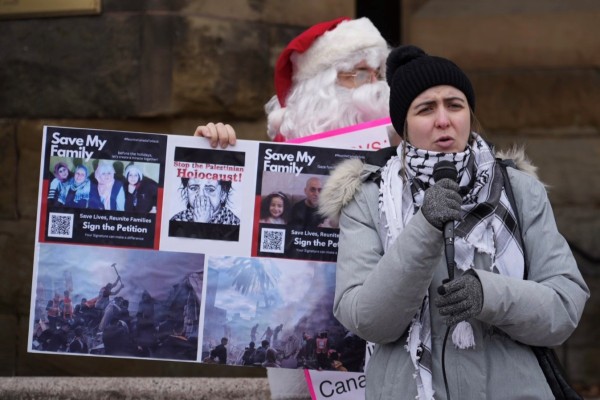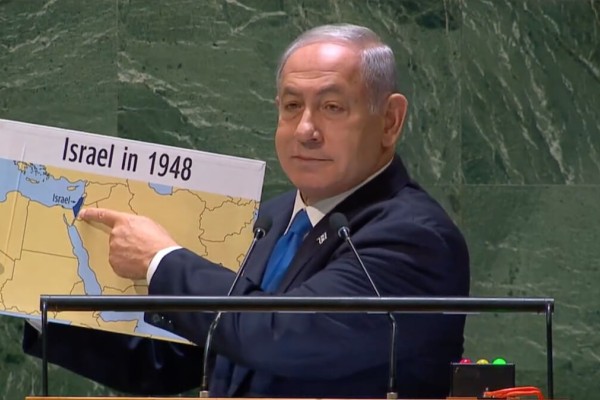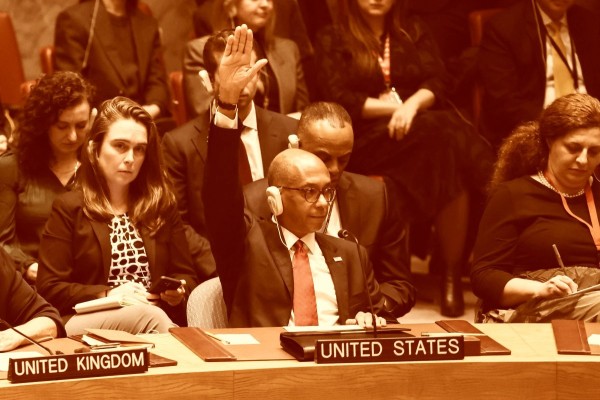As the JNF continues its rampage in the West Bank, CRA ruling offers Palestinians hope
The charity continues expanding Jewish-only land while skirting international and charitable law in the US and Canada

In June, the Israeli government approved plans for five new settlements in the West Bank, including the Nahal Heletz settlement, flanking the UNESCO heritage site and Palestinian village of Battir, pictured here.
“They are using these tactics because they are scrambling. We know we will get our land back, it is only a matter of time.” Alice Kisiya’s words ring fierce against the still night sky framing her wind whipped hair. Since 2012, her family in the West Bank village of Beit Jala has faced demolitions and evictions since their restaurant was first destroyed in 2012. Both a journalist and activist, she has spent her entire adult life fighting against ethnic cleansing on her family’s ancestral land. While ultimately backed by the Israeli army and state, the enemy she faces daily is the Jewish National Fund (JNF), a charity that has been operating in Canada for nearly a century, and the “hilltop youth” they send to “rehabilitate” in the West Bank.
The frontline of settler expansion in the West Bank is almost always young men. These settlers are often transplanted from other communities in Israel. Many come from homes struggling with substance use, mental health, and poverty, and are often caught up in the criminal justice and social welfare system. As a response to this growing social problem in Israel, group homes, vocational centres, and yeshivas (Torah study schools) have been set up to provide homes and education for these troubled youth. Seemingly innocuous, the service homes tend to be operated by right-wing groups and rabbis in the occupied West Bank. Touted as offering holistic job programs and social enterprises for at-risk youth, the outposts help displace Palestinians and claim large swaths of formerly Palestinian farmland. This pathway towards occupation allows for funders like the JNF to uphold their public mandate of building social service infrastructure for Israelis, while also fulfilling their underlying goal of Israeli expansion. For JNF Canada, which has been under audit by the Canada Revenue Agency for several years over its non-compliance with Canadian charity law—which prohibits funding foreign armies—its website and public discourse relies heavily on funding such ‘social service’ projects.
While this strategy is employed all over the West Bank, the current tensions in Bethlehem have propelled these youth and their funders into the spotlight. Two settlement expansions over the summer have made international news. In June, the Israeli government approved plans for five new settlements in the West Bank, including the Nahal Heletz settlement, flanking the UNESCO heritage site and Palestinian village of Battir. Just outside of Bethlehem, Battir is known for its well-preserved stone terraces, an ancient Palestinian form of agriculture that was once found across much of the area. With plans for these settlements underway, the area will soon see an influx of hilltop youth brought to work at boutique organic farms.
In Beit Jala, another suburb of Bethlehem, this process is already taking place. On July 31, hilltop youth backed by the Israeli army came to the private fence of the Kisiya family, tore it down, and replaced it with their own enclosure. In response, local and international solidarity activists joined the Kisiya family to demand a reversal of the illegal eviction. The army responded by declaring their land a closed military zone and arresting Alice and her mother. “The children are not my enemy,” Alice says as she explains the situation, “they are being exploited just like us.” Rather than funding army bases or settler outposts, these unauthorized farming initiatives for at-risk Israeli youth allow the JNF to continue expanding Jewish-only land, while skirting international and charitable law in the US, Canada, and other places it relies on for funding. Through these farming initiatives, the JNF has donated millions of shekels to ethnically cleanse the West Bank.
In the West Bank, most activists have heard about the CRA’s revocation of JNF Canada’s charitable status. The recent ruling offers a glimmer of hope to those facing daily dispossession. They know that Canada has little power on the world stage, but believe this could signal an end to the JNF’s impunity. With the Canadian government responding to these charitable law violations, it begs the question why other countries remain lax in their charity law enforcement. This has, in turn, created space for activists in the US and the UK to demand similar reforms at home. In Canada, Ottawa’s revocation move has opened the door for activists to apply pressure on other Canadian charities similarly complicit in Israeli crimes, including Mizrachi Canada and the HESEG Foundation. The latter, which is headed by Indigo founder and CEO Heather Reisman and her husband, Gerry Schwartz, provides scholarships to Israel Defense Forces soldiers with no family in Israel. Other Canadian charities, including the Ne’eman Foundation, are now feeling the heat.
On the frontlines of this fight, the situation often seems grim. On September 4, the Israeli army demolished the tent that Alice and her family set up next to their stolen land. But the news from Canada brings hope and helps energize those facing down apartheid on a daily basis. It signals cracks in the wall and points to the prospect of an end to international impunity for Israel. Sam Stein, an Israeli activist and field coordinator for Rabbis for Ceasefire, describes the importance of global solidarity to those on the ground enduring violence and arrest for resisting evictions. He likens the work to a band-aid. “The international community is the cure,” he says. They can fight to end global support and funding to Israel.”
With JNF Canada vowing to appeal the decision, Canadian activists must use this victory to continue to fight and condemn the organization’s other fundraising initiatives. While it can no longer issue charitable tax receipts, the JNF is still free to raise money in Canada and send it directly to those who carry out ethnic cleansing in the Occupied Territories.
Anna Lippman is a third-generation Ashkenzi Jewish settler on Turtle Island (North America). She is a PhD student in Sociology at York University. Anna’s research looks at identity, and how young people’s thoughts about themselves are influenced by the world around them. Anna organizes with several groups in Toronto including Showing Up for Racial Justice and Independent Jewish Voices.










